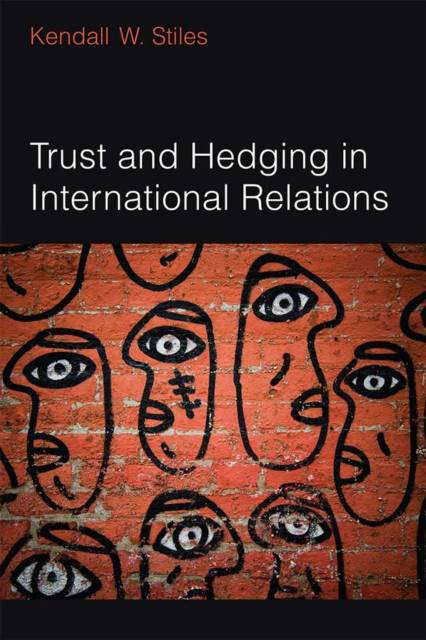
- Afhalen na 1 uur in een winkel met voorraad
- Gratis thuislevering in België vanaf € 30
- Ruim aanbod met 7 miljoen producten
- Afhalen na 1 uur in een winkel met voorraad
- Gratis thuislevering in België vanaf € 30
- Ruim aanbod met 7 miljoen producten
Zoeken
€ 115,95
+ 231 punten
Omschrijving
Do states trust each other? What are the political and ethical implications of trust? Drawing from a wide range of disciplines, Trust and Hedging in International Relations adds to the emerging literature on trust in international relations by offering a systematic measure of state-to-state trust. Looking at how relationships between European microstates and their partners have evolved over the past few centuries, Stiles finds that rather than trusting, most microstates are careful to hedge in their relations by agreeing only to arrangements that provide them with opt-out clauses, heavy involvement in joint decision-making, and sunset provisions. In the process, Stiles assesses the role of rationality, social relations, identity politics, and other theories of trust to demonstrate that trust is neither essential for cooperation nor a guarantee of protection and safety. Finally, he explores the ethical implications of a foreign policy founded on trust--in particular whether heads of state have the right to enter into open-ended agreements that put their citizens at risk.
Specificaties
Betrokkenen
- Auteur(s):
- Uitgeverij:
Inhoud
- Aantal bladzijden:
- 318
- Taal:
- Engels
Eigenschappen
- Productcode (EAN):
- 9780472130702
- Verschijningsdatum:
- 22/02/2018
- Uitvoering:
- Hardcover
- Formaat:
- Genaaid
- Afmetingen:
- 155 mm x 231 mm
- Gewicht:
- 589 g

Alleen bij Standaard Boekhandel
+ 231 punten op je klantenkaart van Standaard Boekhandel
Beoordelingen
We publiceren alleen reviews die voldoen aan de voorwaarden voor reviews. Bekijk onze voorwaarden voor reviews.







